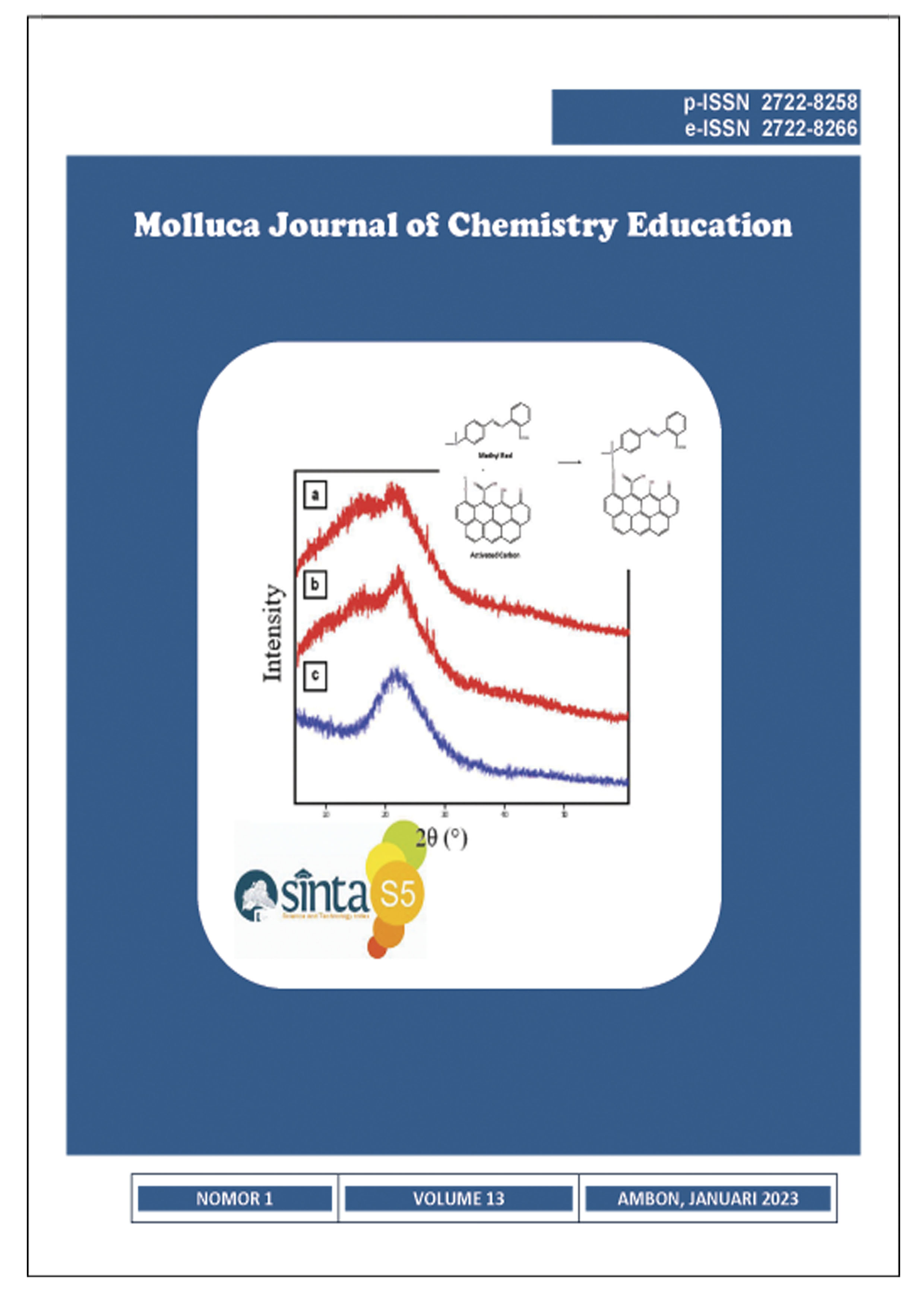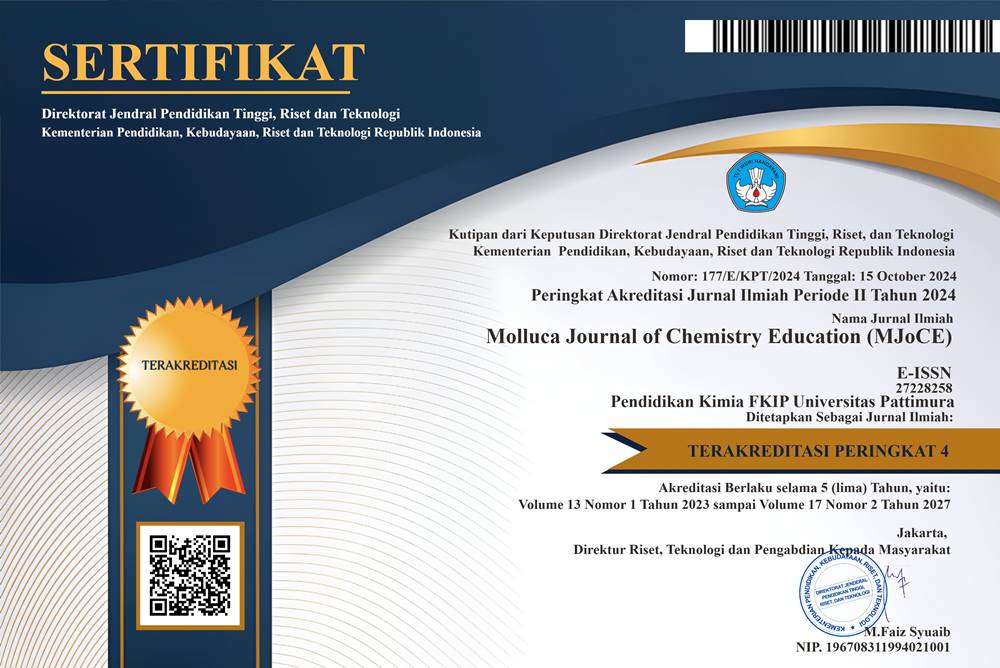CAN THE ETHNOSCIENCE-BASED INQUIRY LEARNING MODEL IMPROVE STUDENTS’ SCIENCE PROCESS SKILLS?
Abstract
This study aims to determine the increase in students' science process skills by applying an ethnoscience-based inquiry learning model to colloid system material from a public high school in West Seram. The type of research used is descriptive-quantitative. The sample used in this research was 30 students in class XI IPA. Data collection techniques in this study were test techniques in the form of a pre-test and a post-test. The results showed that the application of the ethnoscience-based inquiry learning model succeeded in improving students' science process skills, with an increased score calculated based on the results: the average value before learning was 26.29 and increased after learning with an average value of 80.50. The average value of N-gain is 0.74, indicating an increase in students' science process skills in the high category. Encouraging chemistry teachers to explore other ethnosciences to teach colloid systems is necessary.
Downloads
Copyright (c) 2023 Molluca Journal of Chemistry Education (MJoCE)

This work is licensed under a Creative Commons Attribution-NonCommercial-ShareAlike 4.0 International License.





